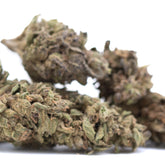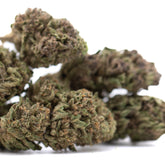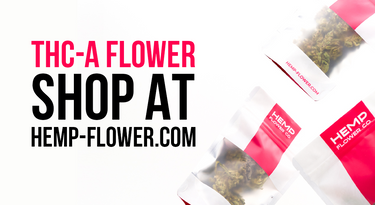Is THCa Flower Legal? Understanding the Regulatory Landscape
Tetrahydrocannabinolic acid (THCa) flower has become one of the most sought‑after products in the hemp industry. Raw flower rich in THCa offers the potential for powerful effects once heated—yet remains legally complex under federal and state laws. If you’re a retailer, processor, or consumer asking “Is THCa flower legal?,” this guide will demystify the regulatory landscape. We’ll examine federal frameworks, state variances like Oregon hemp flower THCa regulations, and industry best practices for hemp wholesale, wholesale hemp flower, and thca wholesale distribution. We’ll show you how to buy hemp compliantly, whether you’re shipping thca flower bulk pounds, stocking a thca pound rack, or scaling up to thca pounds for extraction.
What Is THCa Flower?
THCa flower refers to raw hemp buds containing high levels of tetrahydrocannabinolic acid. In its native state, THCa is non‑psychoactive—it only converts into intoxicating Delta‑9 THC when decarboxylated by heat. THCa flower typically tests 15–30% THCa, offering robust potential for therapeutic and recreational use once heated. Users grind and smoke or vape it to activate the THCa, achieving effects similar to marijuana but within the legal hemp framework—provided total THC remains compliant.
Federal Hemp Law & the 2018 Farm Bill
The cornerstone of modern hemp legality is the Agriculture Improvement Act of 2018 (the “2018 Farm Bill”), which:
-
Legalizes Hemp: Defines hemp as Cannabis sativa L. containing ≤ 0.3% Delta‑9 THC on a dry weight basis.
-
Removes Hemp from Controlled Substances: Hemp and its derivatives (including THCa) meeting the THC limit are no longer Schedule I.
-
Grants USDA Oversight: Federal and state plans for hemp production and processing fall under USDA authority.
However, because heat converts THCa to THC, regulators and labs calculate Total THC to enforce compliance:
Total THC = (THCa × 0.877) + Δ9-THC
If this metric exceeds 0.3%, a product is legally considered marijuana. Thus, hemp companies must rigorously test and document each batch of THCa flower.
Total THC Calculation: Staying Below 0.3%
Calculating total potential THC is critical for maintaining legal hemp status. Steps include:
-
Lab Testing: Use ISO‑certified labs to quantify THCa and Δ9-THC percentages.
-
Apply Decarboxylation Factor: Multiply THCa by 0.877 to estimate Delta‑9 yield.
-
Add Δ9-THC: Sum decarboxylated THCa plus existing THC.
-
Verify Compliance: Ensure total remains ≤ 0.3%.
By standardizing this process, hemp flower companies can confidently sell high‑THCa products without breaching federal limits.
State-Level Variations
While federal law sets the baseline, states can impose stricter rules on hemp products. Two illustrative examples:
Oregon: A Case Study in Oregon Hemp Flower THCa
Oregon’s robust hemp program allows licensed growers to cultivate and sell THCa flower under strict testing and labeling protocols. Retailers may stock Oregon hemp flower THCa in both brick‑and‑mortar and online stores, provided total THC calculations pass ODA inspections. This progressive framework has made Oregon a hub for innovation in THCa strains and hemp wholesale distribution.
Other Key States
-
California: Restricts smokable hemp flower in certain counties despite Farm Bill compliance—necessitating local ordinance checks.
-
Texas: Requires hemp tests to calculate total THC including decarboxylable THCa; higher delta 9 results trigger mandatory crop destruction.
-
Florida: Medical marijuana dispensaries may carry hemp‑derived THCa but are barred from recreational sale in many jurisdictions.
-
Colorado & Washington: Explicitly regulate THCa testing and retail distribution, requiring dual THC/THCa metrics on labels.
Always consult your state’s department of agriculture or cannabis authority before marketing or purchasing THCa flower.
The Role of the Hemp Flower Company
From seed to sale, a compliant hemp flower company must navigate licensing, cultivation, processing, testing, and distribution:
-
Cultivation: Licensed farms produce high‑THCa genetics under controlled conditions (indoor, greenhouse, or outdoor).
-
Processing: Facilities trim, dry, and prepare flower for wholesale and retail markets.
-
Testing & Compliance: Accredited labs verify total THC, pesticides, heavy metals, and microbial content.
-
Distribution: Hemp wholesale partners and thca wholesale distributors spread products through regional and national networks.
-
Retail & E‑commerce: Online platforms and hemp company storefronts list thca flower bulk and single‑pound options.
By maintaining transparent systems and COA libraries, these companies protect consumers and the broader industry.
Wholesale & Bulk Strategies
Whether you’re a retailer or a heavy user, buying in bulk unlocks economies of scale:
Hemp Wholesale Models
-
Pallet Programs: 50+ lb minimums with tiered pricing for wholesale hemp flower.
-
Tiered Volume Discounts: 5–10% off at 10 lbs, 15% off at 25 lbs, etc.
-
Co‑Packing & Private Label: Hemp company partnerships for branded bulk packing.
Shipping THCa Flower Bulk
-
Temperature Control: Insulated packaging and expedited ground shipping preserve freshness.
-
Secure Documentation: COAs and shipping manifests accompany every thca flower bulk pallet.
-
Compliance Checks: Verify destination state laws and license requirements before shipping.
Pricing THCa Pound & THCa Pounds
-
Entry‑Level Bulk: Outdoor farm runs at $150–$200/lb.
-
Premium Indoor Bulk: $300–$450/lb for exotic, lab-tested indoor flower.
-
Mixed-Strain Packs: Variable pricing around $250/lb with curated strain selection.
Strategic buyers combine volume and variety to hit their price targets while offering attractive consumer options.
Compliance & Testing Requirements
A compliant hemp wholesale business adheres to:
-
Licensed Production: USDA or state‑approved hemp grower certification.
-
Batch‑Specific COAs: Total THC, CBD, minor cannabinoid profiles, terpene analyses.
-
Contaminant Screens: Pesticides, heavy metals, residual solvents, microbial pathogens.
-
Labeling Standards: Required fields include cannabinoid content, lot numbers, harvest dates, and warning statements.
By rigorously testing and labeling, companies safeguard consumer trust and regulatory eligibility.
How to Buy Hemp Legally
To buy hemp (including THCa flower) safely:
-
Research Local Laws: Confirm smokable hemp legality in your jurisdiction.
-
Verify Vendor Credentials: Ensure suppliers hold valid growing and wholesale licenses.
-
Demand COAs: Insist on batch reports demonstrating compliance.
-
Use Reputable Channels: Authorized dispensaries near me and established hemp company websites.
-
Record Keeping: Retain purchase invoices and test reports for audit purposes.
Following these steps keeps your operations within legal boundaries and shields you from enforcement actions.
Online vs. In-Person Dispensaries Near Me
-
Online Shopping: Broad selection of thca flower bulk options, discreet shipping, but requires careful vetting of COAs and vendor reviews.
-
In-Person Retail: Immediate inspection of products, personalized guidance, but limited inventory and higher overhead costs.
Use a CBD store locator equivalent on trusted sites to find licenced in-state retailers, and always cross‑reference their offerings with published COAs.
Storing & Labeling Best Practices
Proper storage and accurate labeling are critical:
-
Storage Conditions: 60–70°F, 55–65% RH, in opaque, airtight containers.
-
Label Layout: Product name, harvest date, total THC, batch number, and QR code linking to COA.
-
Child-Resistant Packaging: Compliance with CPSC standards.
Clear labeling and optimal storage preserve both potency and legal compliance.
Future Trends & Regulatory Outlook
As the THCa market matures, expect:
-
Harmonized Federal Guidelines: Potential FDA rules on ingestible THCa.
-
Expanded State Programs: More states adapting robust smokable hemp regulations.
-
Innovative Products: THCa isolates, nanoemulsions, and cosmetic applications.
-
Global Export Markets: Countries embracing hemp imports will demand strict COA and traceability.
Staying informed ensures your hemp wholesale or retail business adapts proactively.
Conclusion
Navigating the legality of THCa flower requires understanding federal frameworks, state nuances, and industry best practices. By mastering total THC calculations, partnering with reputable hemp flower company growers, and leveraging wholesale hemp flower and thca wholesale models, you can confidently cultivate, distribute, and purchase THCa products. Whether stocking a thca pound rack, filling orders for thca pounds of flower, or sourcing thca flower bulk deals, adherence to rigorous testing, transparent labeling, and compliant shipping protocols will safeguard your operations.
For ongoing regulatory updates, product launches, and expert insights, visit our regulatory news hub: https://hemp-flower.com/blogs/news.
Stay compliant, stay informed, and harness the full potential of THCa flower—legally and responsibly.













